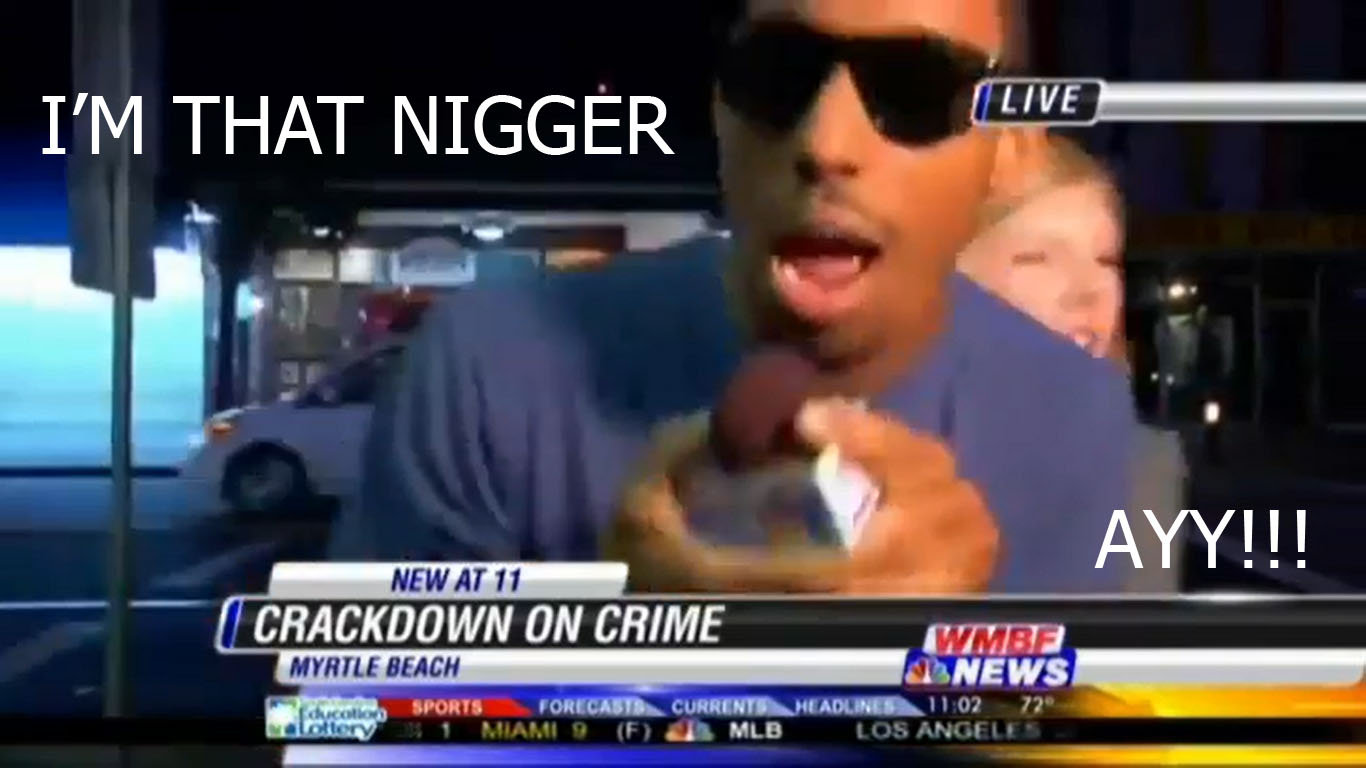Adrian Sol
Daily Stormer
August 27, 2017
We BBC now, cracka.
The BBC, once a proud institution of British culture, is now spending all of it’s resources translating it’s material into weird jungle versions of English for its former colonies.
Before you learn about it, just take a look at it.
How do you go about writing down a language that is almost entirely oral? For the staff of the BBC World Service’s new Pidgin news site, it all started with listening. Lots of listening.
Despite being spoken by an estimated 75 million people in Nigeria alone – and as a first language for five million people – Pidgin has, until this week, been marginalised online. “In terms of its text life it lives pretty much on social media,” says Miriam Quansah, BBC’s digital lead for Africa.

Nigerians, as seen in the documentary District 9.
To begin the process of converting a primarily oral language into an agreed written form, the World Service interacted with people across Africa who spoke it.
It’s cute how White people like to pretend that “Pidgin” and “creole” are real languages.
They’re not.
Nigerian Pidgin is an English-based pidgin and creole language spoken as a lingua franca across Nigeria. The language is commonly referred to as “Pidgin” or Broken (pronounced “Brokin”). It is distinguished from other creole languages since most speakers are not true native speakers although many children learn it at an early age. It can be spoken as a pidgin, a creole, or a decreolised acrolect by different speakers, who may switch between these forms depending on the social setting.
Pidgin is just English with broken grammar and low vocabulary.
I mean, just look at this crap:

“Give me latest gist,” “How dey prepare,” “Pidgin don launch.”

“Informate me,” “How Tanzania dey kill mosquito,” “Why Ghana dey launch satellite.”
This is just straight up Ebonics. It’s broken English with random spelling and grammar. Only Whites could be autistic enough to try to formalize this and make it consistent; you can be sure that the actual Nigerians won’t be following the BBC style guide anytime soon.
French Creole is exactly the same. I’ve pored over Creole books, and found that they don’t even keep word spellings consistent from one sentence to the next. It’s just random negro gibberish.
The idea that Western institutions would stoop to the level of trying to mimic these Black dialects of their own language would be hilarious, if it wasn’t done on the White tax payer’s dime.

